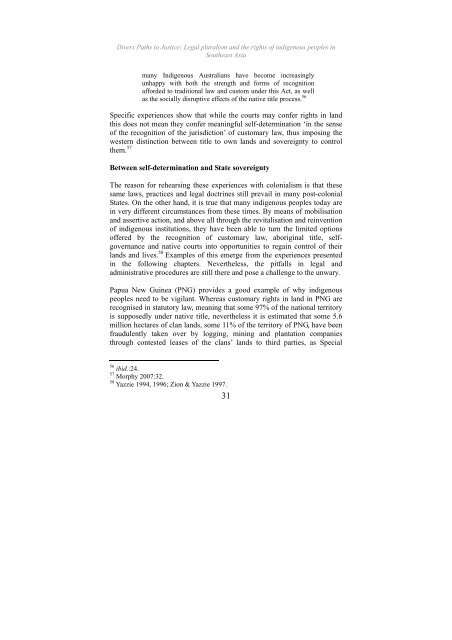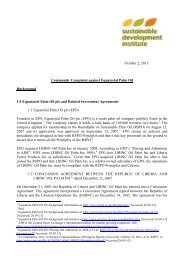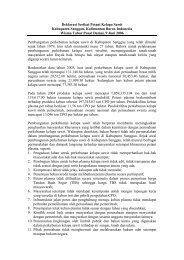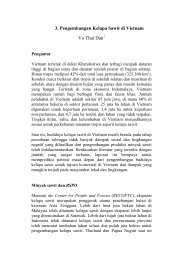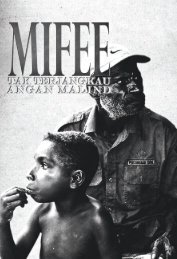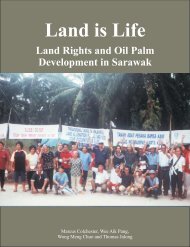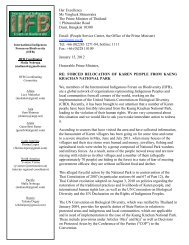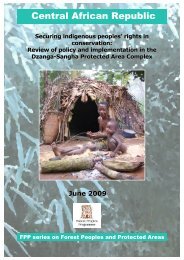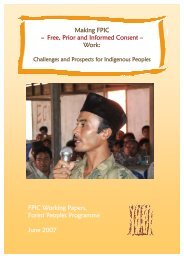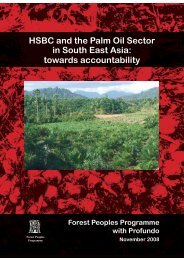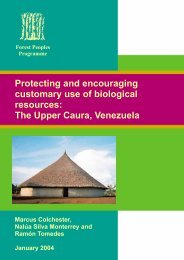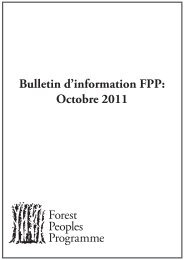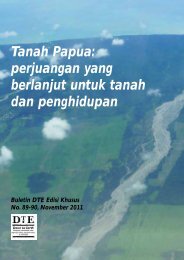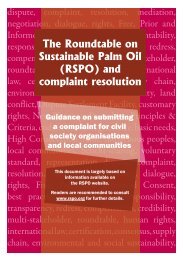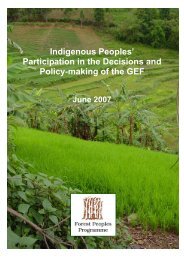Divers Paths to Justice - English - Forest Peoples Programme
Divers Paths to Justice - English - Forest Peoples Programme
Divers Paths to Justice - English - Forest Peoples Programme
Create successful ePaper yourself
Turn your PDF publications into a flip-book with our unique Google optimized e-Paper software.
<strong>Divers</strong> <strong>Paths</strong> <strong>to</strong> <strong>Justice</strong>: Legal pluralism and the rights of indigenous peoples inSoutheast Asiamany Indigenous Australians have become increasinglyunhappy with both the strength and forms of recognitionafforded <strong>to</strong> traditional law and cus<strong>to</strong>m under this Act, as wellas the socially disruptive effects of the native title process. 56Specific experiences show that while the courts may confer rights in landthis does not mean they confer meaningful self-determination ‘in the senseof the recognition of the jurisdiction’ of cus<strong>to</strong>mary law, thus imposing thewestern distinction between title <strong>to</strong> own lands and sovereignty <strong>to</strong> controlthem. 57Between self-determination and State sovereigntyThe reason for rehearsing these experiences with colonialism is that thesesame laws, practices and legal doctrines still prevail in many post-colonialStates. On the other hand, it is true that many indigenous peoples <strong>to</strong>day arein very different circumstances from these times. By means of mobilisationand assertive action, and above all through the revitalisation and reinventionof indigenous institutions, they have been able <strong>to</strong> turn the limited optionsoffered by the recognition of cus<strong>to</strong>mary law, aboriginal title, selfgovernanceand native courts in<strong>to</strong> opportunities <strong>to</strong> regain control of theirlands and lives. 58 Examples of this emerge from the experiences presentedin the following chapters. Nevertheless, the pitfalls in legal andadministrative procedures are still there and pose a challenge <strong>to</strong> the unwary.Papua New Guinea (PNG) provides a good example of why indigenouspeoples need <strong>to</strong> be vigilant. Whereas cus<strong>to</strong>mary rights in land in PNG arerecognised in statu<strong>to</strong>ry law, meaning that some 97% of the national terri<strong>to</strong>ryis supposedly under native title, nevertheless it is estimated that some 5.6million hectares of clan lands, some 11% of the terri<strong>to</strong>ry of PNG, have beenfraudulently taken over by logging, mining and plantation companiesthrough contested leases of the clans’ lands <strong>to</strong> third parties, as Special56 ibid.:24.57 Morphy 2007:32.58 Yazzie 1994, 1996; Zion & Yazzie 1997.31


